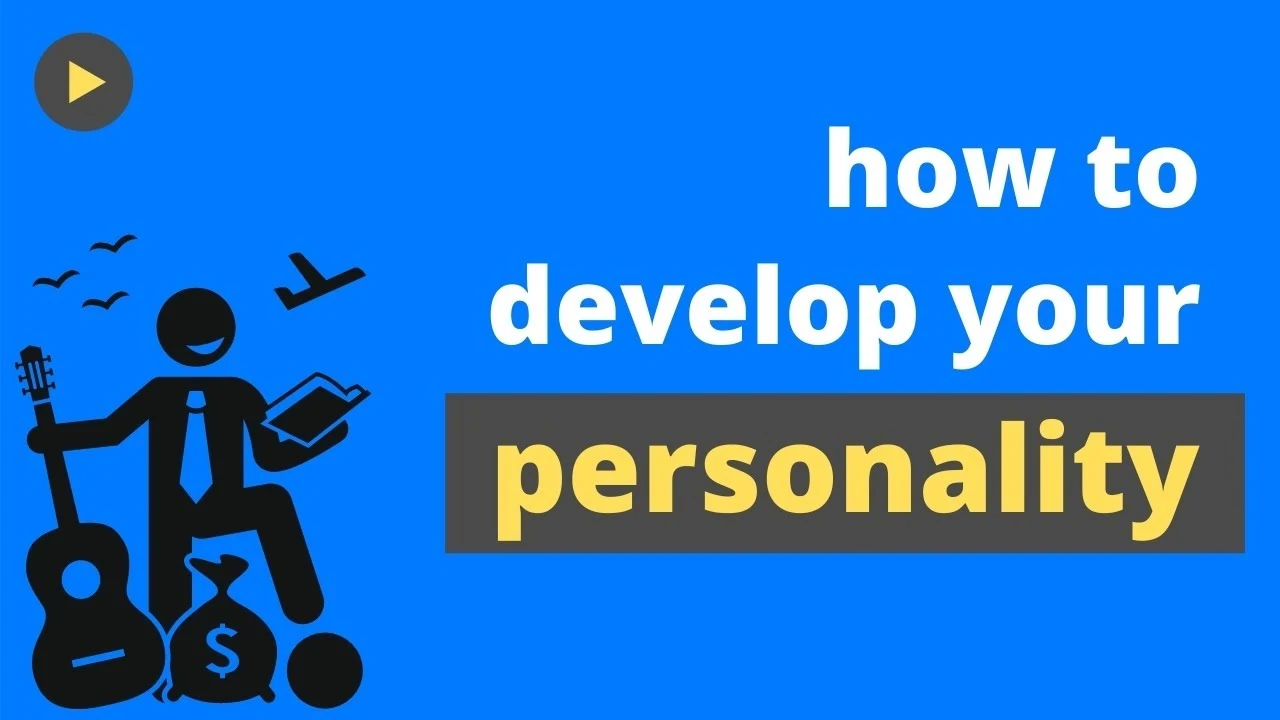Introduction:
In the journey of life, our how to develop personality serve as the compass guiding us through various experiences, interactions, and challenges. However, there comes a time when we feel the need to refine and enhance our personalities to better align with our goals and aspirations. This process of self-improvement, known as personality development, is essential for unleashing our full potential and living a fulfilling life.
Why is Personality Development Important?
Personality development plays a pivotal role in shaping the course of our lives. It empowers us to navigate through life’s challenges with resilience, confidence, and authenticity. A well-developed personality enhances our ability to communicate effectively, build meaningful relationships, and achieve success in both personal and professional domains.
The Impact of a Weak Personality:
A weak personality can manifest in various ways, hindering our personal growth and overall well-being. Individuals with a weak personality may struggle with managing stress, communicating effectively, and maintaining healthy relationships. Additionally, low self-esteem and lack of direction are common consequences of an underdeveloped personality, leading to feelings of dissatisfaction and unfulfillment.
- Difficulty in managing stress: A poorly developed personality can make it harder to cope with stress and difficult situations. Without a strong sense of self, it can be challenging to find healthy ways to manage stress and regulate emotions, leading to increased anxiety and other mental health problems.
- Poor communication skills: Without effective communication skills, it can be difficult to build and maintain healthy relationships. People with underdeveloped personalities may struggle to express themselves clearly, understand others’ perspectives, and establish meaningful connections with others.
- Low self esteem: A poorly developed personality can lead to low self-esteem and feelings of inadequacy. This can negatively impact one’s mental health, relationships, and overall quality of life.
- Limited career opportunities: A weak personality can hinder career development and limit opportunities for professional growth. Without the necessary skills and traits, such as confidence, determination, and adaptability, it can be challenging to excel in the workplace and advance in one’s career.
- Lack of purpose and direction: Without a personality development, it can be challenging to identify one’s goals, values, and purpose in life. This can lead to a sense of aimlessness and lack of direction, making it difficult to find fulfillment and happiness in life.

Understanding Personality Types:
Before embarking on the journey of personality development, it’s essential to understand the different personality types. Introverts, extroverts, and ambiverts represent distinct personality traits, each with its unique strengths and challenges. By recognizing our innate tendencies, we can leverage them to our advantage and tailor our development efforts accordingly.
Also Read : Health and Wellness
Determinants of Personality:
Our personalities are shaped by a myriad of factors, including genetics, environment, upbringing, and life experiences. While genetics may predispose us to certain traits, environmental influences and personal choices also play a significant role in shaping who we are. By understanding the determinants of personality, we can gain insight into our behavioral patterns and identify areas for improvement.
- Heredity: Research suggests that genetics play a significant role in determining personality. Studies of twins and adopted children have shown that genetic factors account for approximately 50% of personality traits.
- Culture: Cultural norms and values can also influence personality. For example, individuals from cultures that value conformity may have a different personality profile than those from cultures that value independence and autonomy.
- Environment: Environmental factors, such as upbringing, socialization, and experiences, also shape personality. Childhood experiences, family dynamics, and cultural norms can all contribute to an individual’s personality development.
- Biological factors: How an individual processes information and perceives the world can also affect personality. For example, people who tend to be more open-minded and curious may have a different personality profile than those who are more closed-minded. The structure and functioning of the brain can also influence personality. For example, individuals with certain brain structures and activity patterns may be more likely to exhibit certain personality traits, such as impulsiveness or introversion. Hormones, such as testosterone and cortisol, can affect personality. For example, high levels of testosterone are associated with greater aggression and risk-taking behavior, while high levels of cortisol are associated with greater anxiety and stress.
Exploring Personality Theories:
Psychologists have proposed various theories to explain the complexities of personality. From Freud’s psychoanalytic theory to trait theory and humanistic theory, each perspective offers valuable insights into the mechanisms underlying personality development. By delving into these theories, we can gain a deeper understanding of ourselves and our interactions with the world around us.

Strategies for Personality Development:
Developing a strong and healthy personality requires deliberate effort and commitment. Self-awareness, positive thinking, effective communication, goal setting, and emotional intelligence are among the key strategies for personality development. By incorporating these practices into our daily lives, we can cultivate resilience, confidence, and authenticity.
Tips to Improve Your Personality:
Improving your personality is a journey of self-discovery and growth. By embracing self-awareness, seeking feedback, and cultivating positive habits, you can enhance your personal and professional life. Remember to be patient with yourself and celebrate your progress along the way. With dedication and perseverance, you can unlock your full potential and become the best version of yourself.
- Be self-aware: The first step to personality development is to be aware of your strengths and weaknesses. Identify areas where you need improvement and set goals accordingly.
- Practice self-reflection: Take some time to reflect on your actions and behaviors. Ask yourself why you do certain things and how you can improve.
- Be open to feedback: Be open to feedback from others, and use it as an opportunity to grow and learn.
- Develop emotional intelligence: Emotional intelligence involves being aware of your emotions and the emotions of others. Work on developing this skill through reading, reflection, and practice.
- Develop good communication skills: Good communication skills are essential for building positive relationships. Practice active listening, speaking clearly and respectfully, and expressing your thoughts and feelings in a constructive manner.
- Cultivate empathy: Empathy is the ability to understand and share the feelings of others. Cultivate this skill by putting yourself in other people’s shoes, listening to their perspectives, and showing compassion.
- Develop a positive attitude: A positive attitude can make a big difference in how others perceive you. Focus on the positive aspects of life, and try to approach challenges with a can-do attitude.
Also Read : The Power of Cultural Education
Conclusion:
personality development is a continuous journey of self-discovery and growth. By understanding the importance of personality development, recognizing the impact of a weak personality, and exploring different personality types and theories, you can embark on a path of self-improvement and transformation. With the right strategies and tips, you can unlock your potential, overcome obstacles, and live a life of purpose and fulfillment. Remember, the key to how to develop personality lies within you – embrace the journey, and unleash your true greatness.




